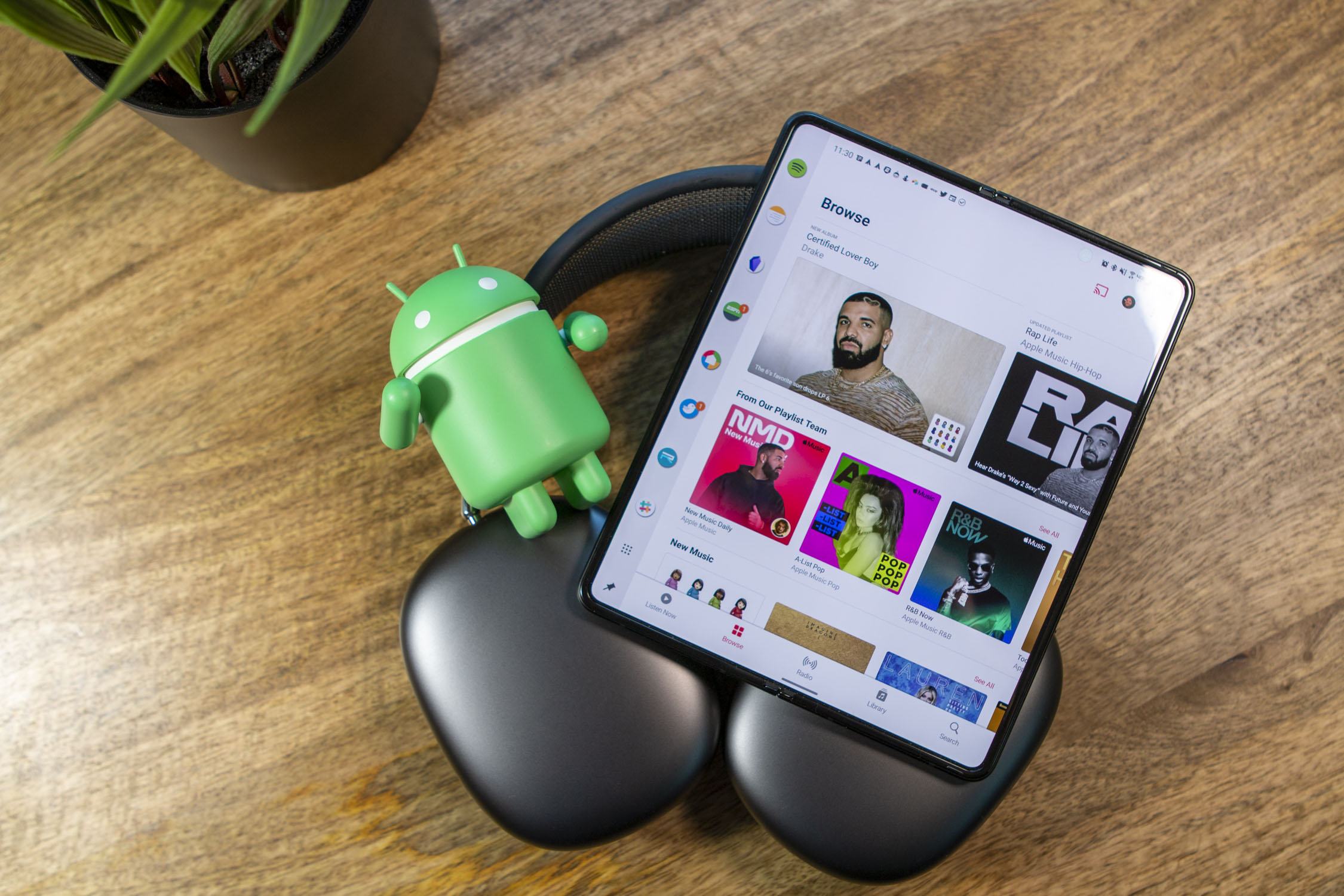
VisionMobile recently mulled over some of the top open source platforms to rank each in terms of their “open governance index.” Spoiler alert: Android didn’t do so well. Google’s mobile OS was compared with Eclipse, Firefox, Linux, MeeGo, Qt, and Symbian and scored lowest, earning a 23 percent. The next closest platform scored 58 percent, while the Eclipse led the pack with an 84 percent. VisionMobile pointed to statements by Google’s Dan Morrill in which the Android compatibility chief said the tech giant was using compatibility “as a club” to force manufacturers to comply with Google’s wants. The full reason for Android’s low score was described as follows:
“Visibility to the roadmap is limited, as there is no Android roadmap publicly available. In fact, development of the Android private branch and the roadmap is controlled by Google, with little input from external parties or the Open Handset Alliance members,” the report says. “When launched, the Open Handset Alliance served the purpose of a public industry endorsement for Android. Today, however, the OHA serves little purpose besides a stamp of approval for OHA members; there is no formal legal entity, no communication processes for members nor frequent member meetings.”
Ouch. But we can’t blame them. Their points are valid and many of the same have been expressed by Android developers alike. One could point to the absence of a complete release of the Android 3.0 source as a prime example of the problems with Google’s method of open source.
[via BGR]









I agree with this.
Obvious article is obvious. Only the anti-apple obssessed fanboys thinks it truly is open. It isn’t. It’s only open as Google wants it to be. But some people just want to believe that Google is a company who does anything and everything for the consumer. Not sure how they can think they’re an open company when the biggest source of revenue for the company, search, is the polar opposite of open. Any company’s first priority is the shareholders. Not the consumers.
Look up the definition of open source, it is technically open source even if it doesn’t fit into YOUR narrow definition of open. Of course it’s only as open as Google wants it to be, it’s their product. Only the anti-Google obsessed open source fanboys think it’s not open.
I don’t even care if it is open source. I just want to see multiple handset manufacturers making devices and multiple ways to get apps on those devices and I’m good. That’s open enough for me. I came from Windows Mobile and chose Android for those reasons, not some open source manifesto crap.
Well just because you don’t care about truly being open doesn’t mean a lot of other people care. Hell most of the android fanboys always argue that Apple is only closed and Android is open. It isn’t open as this article/study points out.
My point is this: Google didn’t make Android “open” or “open-source” out of some concession to the consumer because they think it’s best for them. They did this so Android would be adopted by any manufacturer because it is free and as a result it would dominate market share. Why? So they can control the mobile search market. Why? Because search is their only real source of revenue. And their philosophy behind search is the complete opposite of open. Bottom line: Google cares about their profits just as much as Apple, Microsoft, any other public company you want to name. This is what many anti-apple fanboys don’t realize.
Um…Google’s main source of revenue (basically only source) is advertisements…that’s what Google does.
When I see a Cyanogen build of Mozilla, Eclipse, Firefox, Linux, MeeGo, Qt, and Symbian or any developer for that matter, then I will be in a better position to discuss the “openess” of the other stuff mentioned above
Really? Lets put Linux aside for a moment (please research just how many linux distros there are). Your only argument is that because the CM doesn’t have a build of those, they aren’t open? Really?
Frankly, how many modifications are made to something does not determine openness. Firefox is popular and open, but because it is fairly well built from the get go, there isn’t alot of mods needed.
Also – CM7 may be built on the “open” source of 2.3.5, but that is quickly hampered by the closed source nature of many companies drivers, which are either outdated or reverse engineered from other soruces.
If Google releases the source code for their OS, doesn’t that mean its open? Maybe not open in the terms that hundreds of thousands of developers don’t necessarily contribute, but the code is open for whoever to grab and use.
You don’t want to now how many 3rd party ROM out there in the world of Symbian. I was a Symbian user and I know exactly what is in the world of Symbian but the sad truth is there aren’t much good 3rd party developer out there in the world of Symbian.
It’s a wonderful catch-22. Be open and suffer fragmentation or be less open and get criticized.
Yes, that’s the exact catch-22 that Apple suffer from. Just goes to show once again that fragmentation and openness go hand in hand. Since fragmentation is undoubtedly a big issue for any device, but increasingly so the more consumer-oriented a device is and hence particularly for phones, it is reasonable that a certain amount of opennness will have to be sacrificed to make the devices more suitable for a broad market. Hence you end up where Apple are.
That doesn’t mean Apple’s model is perfect. Far from it. They are at the opposite end of the spectrum, when they dictate everyone everything and there’s only one choice.
The best compromise between openness and closeness seems to be the *desktop* Windows (not WP7 – too closed). Desktop Windows is open enough to work on a variety of hardware configurations, but also close enough that it provides a consistent experience across devices.
That’s pretty much where Android needs to be – if only just slightly more open. Openess has helped Android grow faster than any OS before it, but I think the ecosystem is getting more mature, and it can start to become more standardized, to provide a better experience for the end-users.
Why do you consider Apple’s model far from perfect? Because you think they don’t offer different handsets? Newsflash: The consumer has the choice. The manufacturer doesn’t dictate anything. The consumer doesn’t have to buy the product if it doesn’t satisfy their needs. You want to call Apple’s model flawed because of some lack of choice, yet it has no problem selling the devices and being the largest tech company in the world.
Can customize the hell out of my phone….not just home screen….. phone.. with no need to jailbreak
Open enough for me…
Open Source doesn’t mean that it has to be available for anyone to contribute to it.
Great explanation from Wikipedia http://en.wikipedia.org/wiki/Open_source
There are many facets to open source and Google is well within their rights to handle Android in any manner they see fit. All this back and forth about how open it is is ridiculous.
No one is saying Android is not OPEN-SOURCED. They are saying as a project Android is not that open.How does one contribute to it, where are the clear roadmaps? Basically, the Android dev team disappears after a major release untill some only-Google-known-date where the Android dev team comes from the blue and releases an SDK with who knows what during who knows when.
I really do like Android, but as a user of a few Linux distros, Android is nowhere as open as a desktop Linux Distribution, where changes are made in the open.
Android was not made “open” in your sense. The company, Google, created it, and they maintain it. These people get paid to do this, which isn’t the same as any Linux distro, which is quite a difference in how Google is going to be managing THEIR operating-system and THEIR work. You, and many more, act like Google needs to tell you everything about their work, their company, their money, their management, their release dates, their innovations, everything. You are stupid to think that. Google must make a profit or they cannot exist, same is true for any company. People say it as derogatory that “Google is in it for the money, nothing else” I don’t agree with it, but Google is in it for the money, because as previously stated, it is a requirement for their existence. Anyways, with all the work the Google devs do on all of their projects, you expect them not to be paid? You want them not to get their monthly pay-check? Now there is a reason I went into this money rant. Google cannot keep Android up in the market share and therefore cannot make a profit if they run their code like Linux distros do. Google must innovate and make a “boom” in the market with every release or nothing will happen. And also having a road map for other companies to view is just stupid. Again, it is just stupid to look down on Google for what they are doing. They truly work on getting the best user experience of the Android platform, and is gracious enough to release the source-code for their work too. The OEM’s don’t quite hold up to their side of the “openness” but they are not obligated to release driver source etc. etc. You might argue that Google would profit from having a developer fan-base that all of the innovations and secretiveness is not needed, but you would be wrong. Developers might consist of 1% of their customer pool. Maybe. It is nothing to keep Android rolling. Personally I am completely satisfied with the way Google runs their system. They don’t force you to hold their hand and they don’t hold yours, which is just the way I like it.
Right! Google’s Android is “open” in a much different sense than Meego or desktop Linux. It works because of all the differences in phone hardware. I asked “Where are the clear roadmaps”. I did not demand anything.! I was pointing out the difference betwen an open project and an open-sourced one. No need to call me stupid. —
Sent from my Android phone with K-9 Mail. Please excuse my brevity.
well you cannot contribute to the loads as some others indicated… there is no real community involvement into the main branch. I think they could do a better job of letting others into the development process and what is coming on the roadmap. The roadmap may not be released as it could be considered a competitive advantage I could suppose… but since Firefox does it I am not sure it is a real threat.
Now they need to release 3.0 to open source.
People like to complain. It’s better this way. What’s the use if there’s a roadmap of some sort? Competitors would EASILY steal some upcoming feature from the roadmap into their OS and call it innovative and revolutionary.
How open you consider Android to be depends a lot on where you draw the line; is it Google’s Android platform, or the OHA’s Android platform? Technically it’s the OHA’s platform, with Google being by far the biggest contributor and moderator, as a founding member of the OHA. This is actually very open, and very useful as a developer, compared to other mobile platforms, when you need to dig down to see what’s truly causing an error.
The problem is that Google seems to increasingly blur the line between contributor/moderator and owner. The first instance of this happened straight out of the gate, with Google reserving the most useful features as private Google owned apps: Market and Maps. If any manufacturer wanted these, they had to (and still do) play completely by Google’s rules. In the beginning these were almost laughably bad, with little improvement from one version to the next, but as other developers (Amazon, Bing, etc.) have entered the ecosystem Google has made marked improvement to these as well as releasing an onslaught of other exclusive apps.
Google also had very conspicuous integration into search, starting with early Android releases. They did eventually allow other developers to integrate their own search services, but only if users can figure out how to follow all of the steps to enable the feature, which analytics on apps I’ve worked with has been shown to be quite low even with a direct link into the settings page.
The latest issue with Honeycomb not being released with source could be seen as Google simply working on it as a 3rd party variation for tablets like the Motorola Xoom, which is perfectly acceptable for open source software, except that Google released information about the platform version and tools for developers on the Android developer site. Really the OHA should ensure that only official Android releases (i.e. fully open sourced non-Google branded…notice the OS integrated search bar ALWAYS saying Google in Honeycomb) are documented and released through the Android developer site, or they should allow all 3rd party developer variations the same access.
In fact, there are links all over the place to Google from android.com, including the Google TV (another 3rd party variation of Android by Google) on the developer site, and hosting the entire Android Market, which Google lords over manufacturer’s heads if they don’t conform to Google certification. I suppose Google owns the android.com domain, so the question for the OHA is, where is your impartial documentation of Android, and where can we download a pure version of the Android tools. It’s very unclear where the OHA ends and Google begins.
This may sound like a rant, but it’s really just to focus on some of the strange issues intertwined in the openness of Android, a platform I actually love and make a living developing for. The problem is that as far as I can tell, this is Google’s first, or at the very least its largest product release with consumers on the demand side of the equation. Google is used to selling consumers to advertisers, which normally puts consumers squarely on the supply side (like cattle for a fast food chain). Google does a lot for consumers, but it’s all in an effort to increase supply for their advertisers, which is what keeps their services free. Android is also free (for manufacturer who haven’t been sued), and for a long time Google’s stance on apps was that they should be free with in-app advertising (and it probably still is, even though many developers have ignored them); can anyone guess who would be supplying those ads? If your a developer, take a look on the right side of your Android Market developer home page for a clue (for non-developers, it’s AdMob…by Google).
I agree with most of what you said except the last part, as a developer doesn’t have to use AdMob or any other Google service to put ads in his/her app. Google has clearly stated that you can use any service that you wish, the choice is yours. Google does make it nice and easy to implement AdMob – which is good – but it’s still not requited to use it for advertising.
Yea but we all know why thy did that…
———
this debate is so stupid, the only source code not released by google is honeycomb, which doesnt matter because i have a port of it running on my captivate at the moment :-P
To question Android’s openness?
Is iOS OS or OS X OS available for Dell, Acer, Samsung, Sony, HP, Asus?
Why the hardware bundled OS never be questioned with openness?